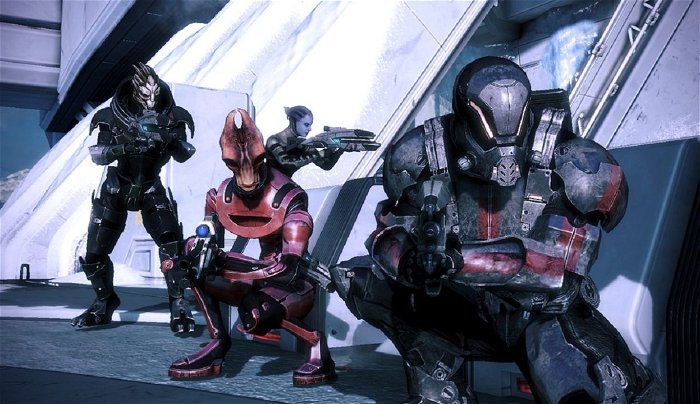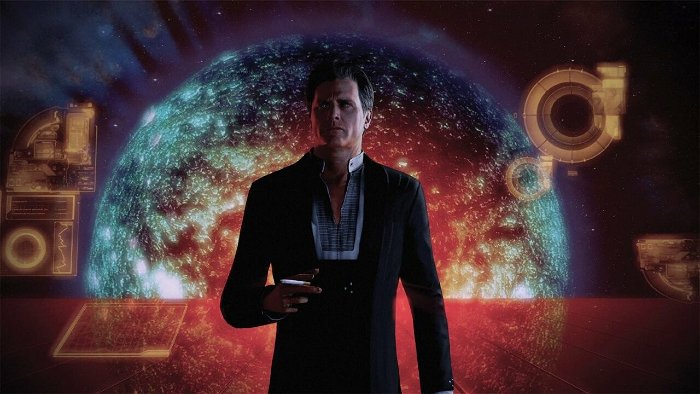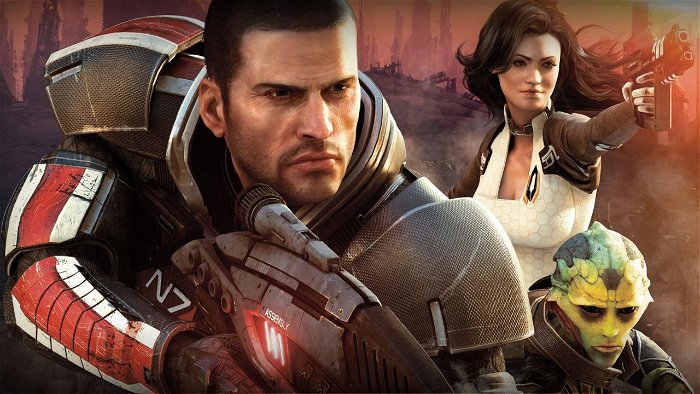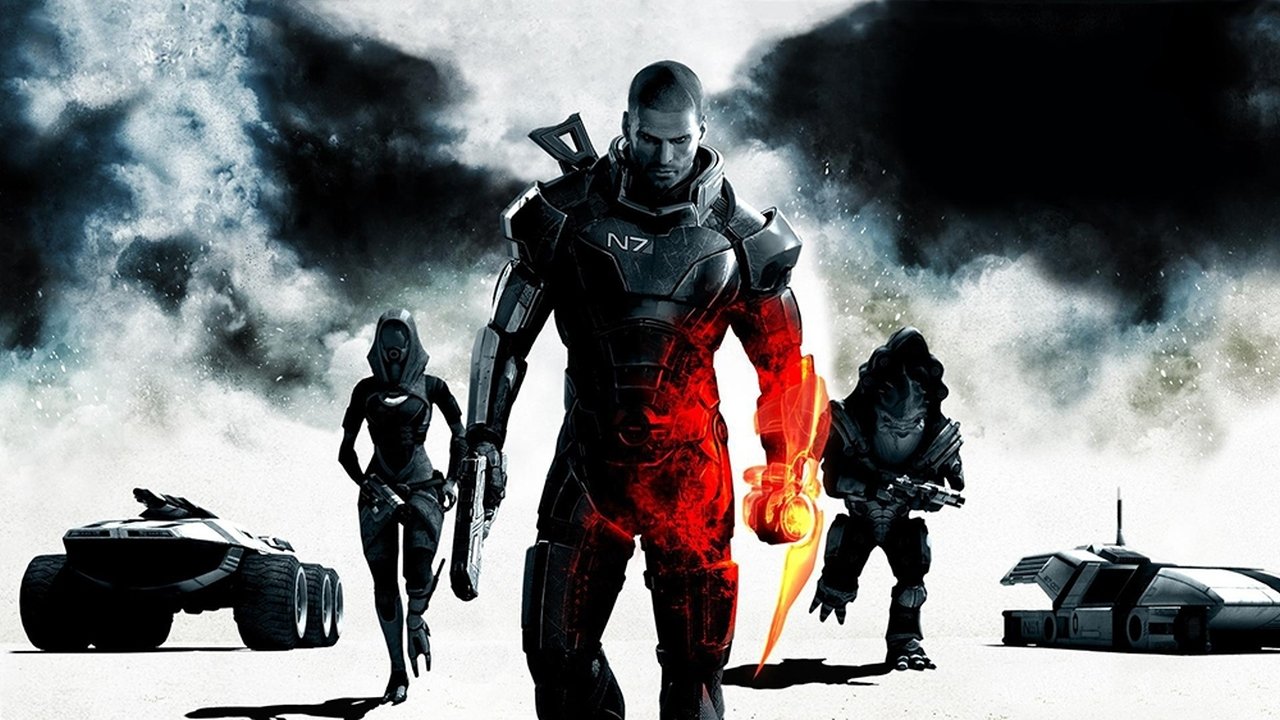Mass Effect 3 from Bioware is the finale of the ME series. As the end of a trilogy one would expect an epic ending which answers many questions, gives players something to think about, shows the results of all your choices through the games and gives players a sense of closure. Unfortunately, ME3’s ending did none of these and has instead caused a lot of anger with the player base.
Many players have reacted poorly to the ending provided. There is a lot of hate and anger to be found on various forums that deal with the game. The GameFAQs forum for ME3 has about half its active posts revolve around negative responses to the ending. Players have contacted Bioware to complain and demand an alternate ending. And while there are usually some unsatisfied players with any game, it is rare to see such a unified response.
On the official Bioware forums, there is a poll that has been posted by a 22-year-old Italian user who goes by the name of Martyr that asks for player response to the endings provided. The results are surprising, showing 90% of players unhappy with the endings they were given.

“[Bioware] has a unique and solid fan base that gave them lots of feedback and bug reporting during the past years,” said Martyr. “They can’t just drop the ball like that. Plus, all of this reminds me of the Dragon Age 2 endings and I’d doubt they would repeat that too soon. You’d be really stupid to fall for that twice in a row.”
Martyr’s comments about the ending are in tune with the overall complaints most have: “It’s bleak to put it mildly, it lacks closure, it’s full of plot-holes, it’s kind of rushed and most importantly our choices have no impact at all.”
The game series has always focused on choice and consequence. Allowing the player to shape their experience and having those choices affect the endings has been a main selling point from the start. Even the official website states: “Experience the beginning, middle, and end of an emotional story unlike any other, where the decisions you make completely shape your experience and outcome.”
However the endings to the game itself are not affected by your choices in any way. They are the same three endings which everyone will have access to. They provide no closure on events you’ve experienced and the choices you made through the game are not shown or referenced in any way. Naturally, this is one of the main reasons there is so much upset.

The massive disappointment to the endings has spawned various groups and petitions aimed at Bioware to change the endings. The Demand a Better Ending to Mass Effect 3 group on Facebook has over 30,000 “likes” so far. Many players are happy to vent their frustrations. Unfortunately, some of them end up ranting and not helping their movement, but there are many who have made eloquent and well considered points about what’s wrong with the endings and what can be done to improve them.
One of the founders of the Demand movement is an American who wishes to simply be referred to as “Eric”. He believes that emphasis shouldn’t be placed on individuals but on the movement as a whole and the gamers it represents.
“I made the movement because after finishing Mass Effect 3 I literally felt ill,” said Eric. “After years and hundreds of hours of gameplay to make the “perfect” character everything I had done seemed to be discarded and I was upset by that.” According to Eric, the group was created simply to see if there were others who might stand up and protest the ending Bioware delivered. He had expected only about thirty or forty people to sign up and he was surprised when the members jumped into the 5-digit range. “We’ve received support from a few different gaming sites, most notably Gamefront and RobotGeek and the idea of the movement has been supported by several writers at Forbes.”
Forbes magazine has released an article that discusses the idea of gamer entitlement. It makes some very interesting points about the relationship between game companies and the player base. It also makes reference to a video posted on IGN by Colin Moriarty, which essentially claims that gamers are overreacting and showing an “entitlement complex”. Moriarty’s comments themselves have raised the ire of many gamers and IGN readers.

Casey Hudson, the director for Mass Effect 3, has commented that he doesn’t understand why the fans are upset and that if changes were to be made to the endings that they would require careful work and planning. However, it is of some relief to gamers that at least consideration is being given to possibility of ending downloadable content (DLC). Though gamers do not appreciate the idea of being charged for a fix to the endings. Rather that these should be delivered free of charge to make up for the terrible endings the game came with. Whether Bioware releases ending DLC and what cost might be attached to it is still unknown. Bioware could not be reached for a comment on this matter.
Just how Bioware responds may still be in question, but there is something else to consider; how much is the player entitled to? There are those that believe that gamers should simply be happy with whatever they are given. But is that true? The gamers are paying money for a product and while everyone will have their own tastes as to what’s good or not, being given what they’re promised is a right everyone shares. Bioware made it clear that the Mass Effect trilogy was a continuation of the cause and effect gameplay, where play choices would determine and shape the story and its conclusion. However in reality the endings of the game have nothing to do with the player’s actions. Most players see this as a lie to them by the company and it is a leading factor in their upset.
People would say that game companies don’t have to answer to the players. That’s true to a degree, however they do have to answer to their shareholders. The shareholders are concerned with the bottom line, with getting a return on their investment. They don’t care about the gamers beyond a source of profit and the gamers are the ones who control that. If players are upset and decide to boycott a game, to deny DLC sales, that affects the profits the company makes. If the players stand up and make their disappointment known then the companies will have to respond, because the shareholders won’t keep funding a company that can’t meet the demands of the players. If this is considered “entitlement” then players should be as entitled as they can be. Gamers should never believe that they don’t have the right to make demands of the game companies because it’s perfectly in their rights, if not their responsibility to do so.

Companies such as IGN might claim that gamers have an inflated sense of entitlement, but that’s also something to be expected. Such companies rely on the game developers, and more specifically the ad space that they buy in their sites and magazines, for profit. If they don’t support the game companies then their profits from ads and the free titles they receive from the companies will quickly dry up. Seeing a gaming magazine supporting a company despite the complaints of the gamers or writing reviews that clearly ignore the faults of a game common practice. They survive by keeping in the good graces of the game companies.
Mass Effect 3’s ending has had huge repercussions. It’s sparked enough of a response to cause groups and petitions to rise up demanding change. But there’s a greater impact here, more than just an attempt to change the ending of one game. It’s the start of gamers truly making themselves heard on a grand scale. The word has gotten out that gamers matter, that their opinions count and that they have a responsibility to demand proper treatment from the companies making their games. Bioware has taken note of the reaction their game has caused. Other gaming companies have to be keeping an eye on what’s happening and trying to learn from this experience. It’s up to the gamers to stay aware of their rights and make sure their voices are heard.



